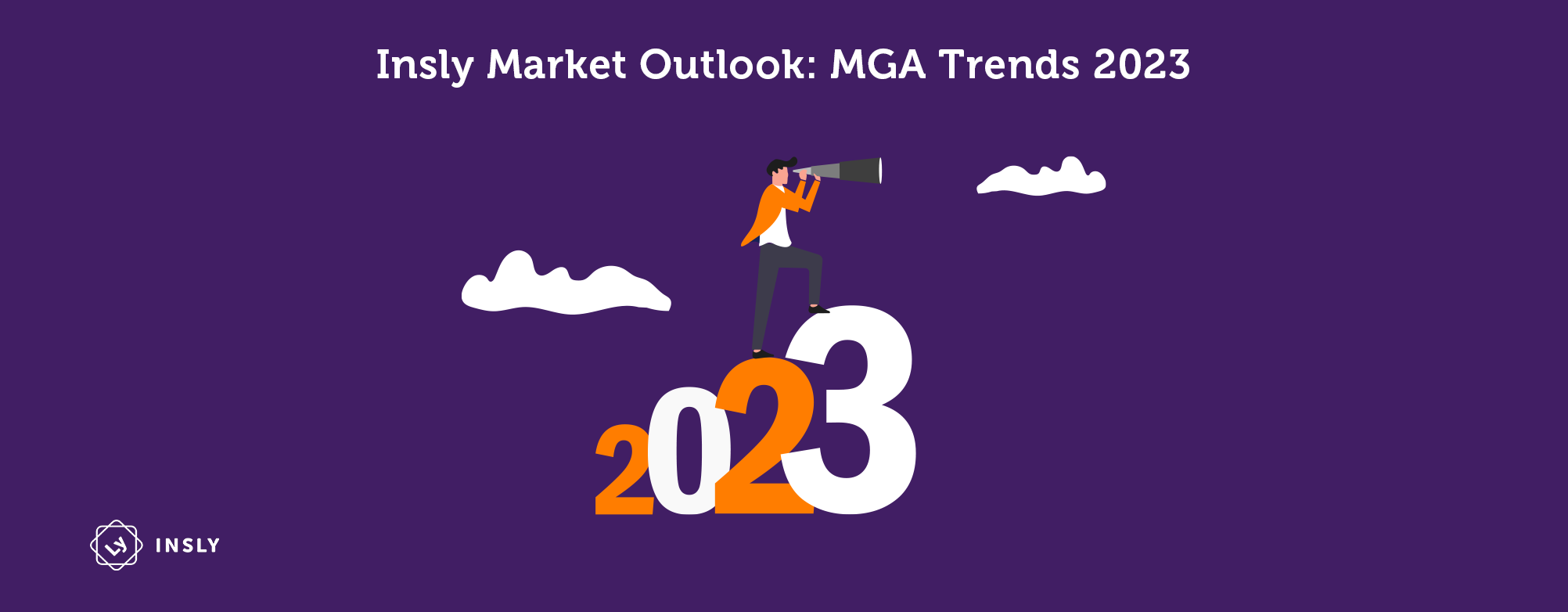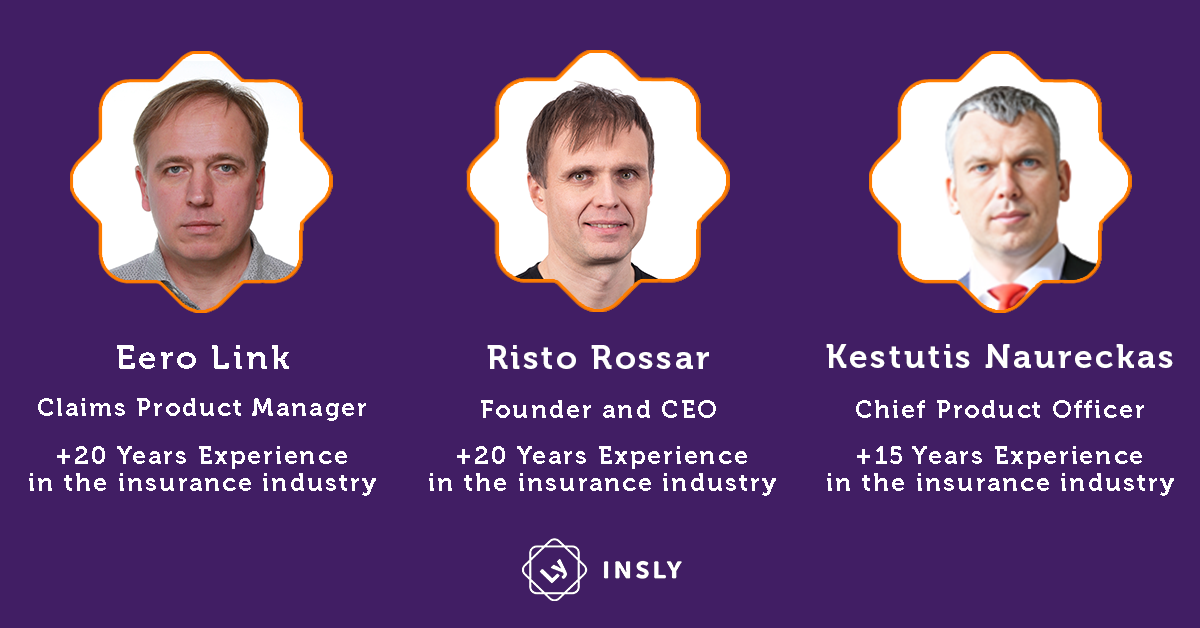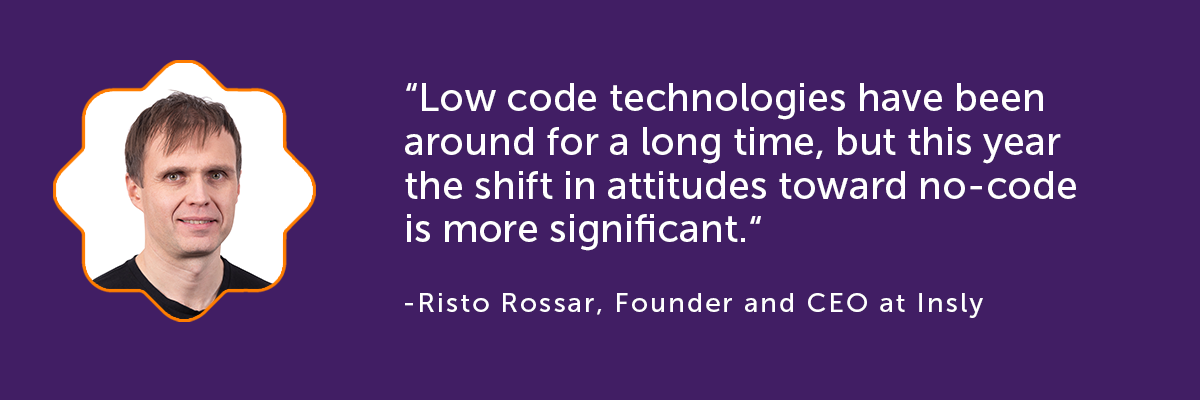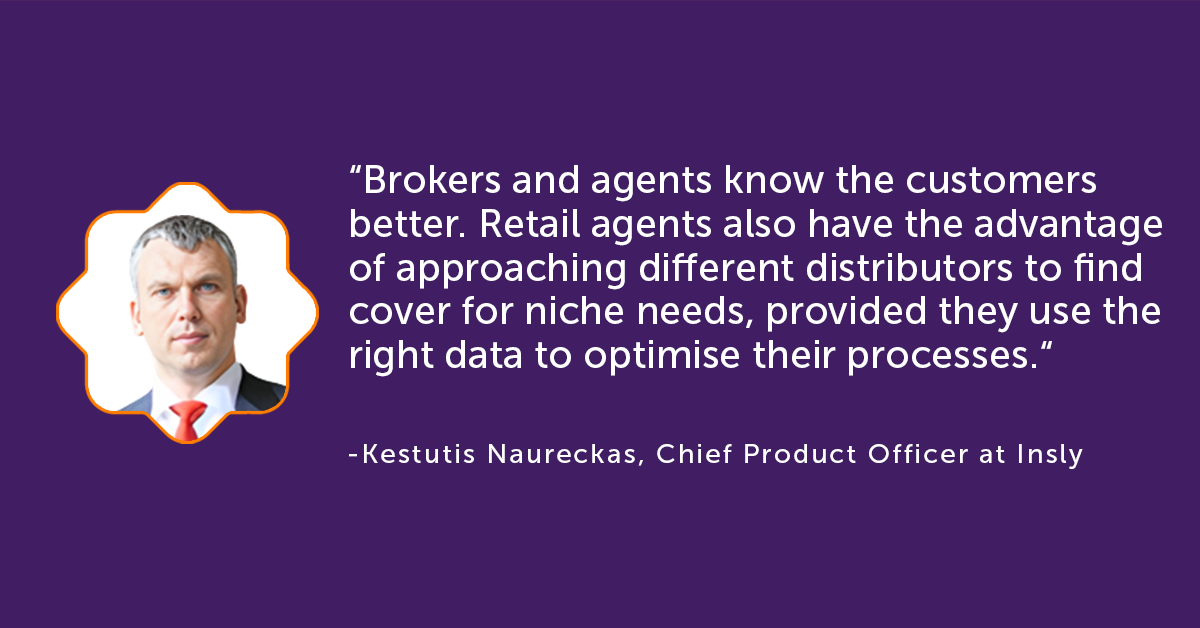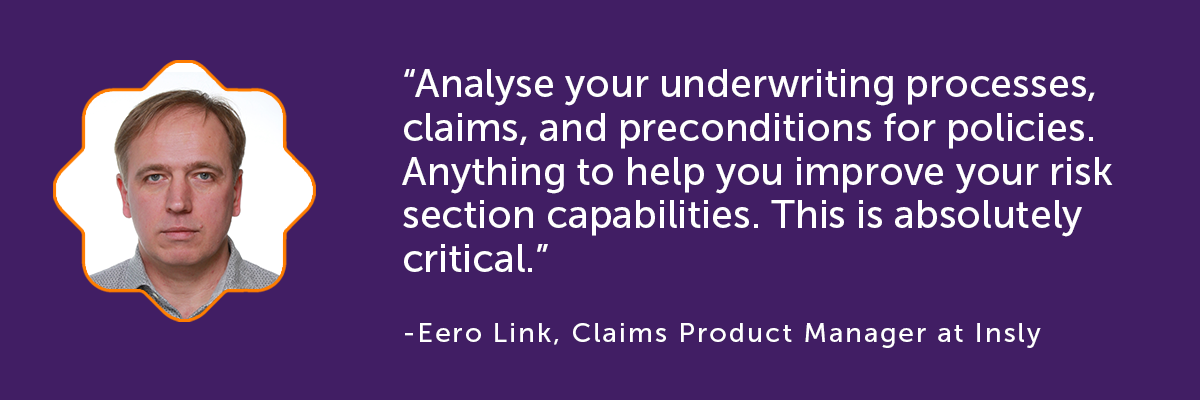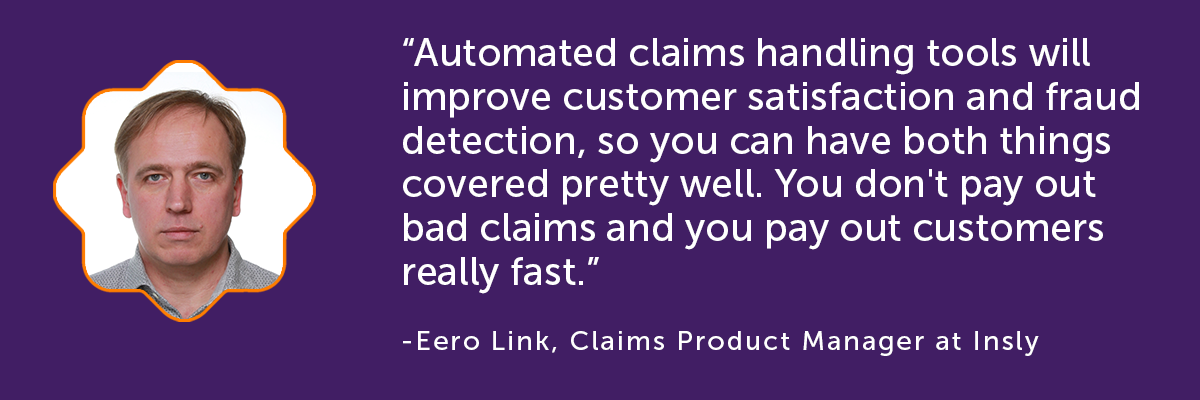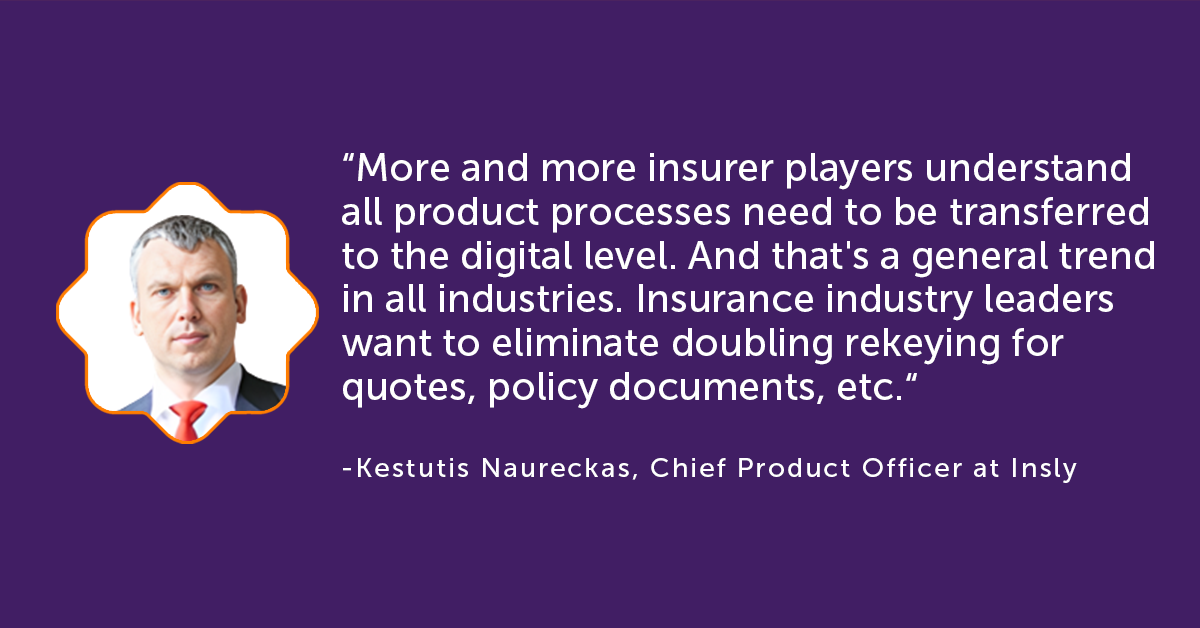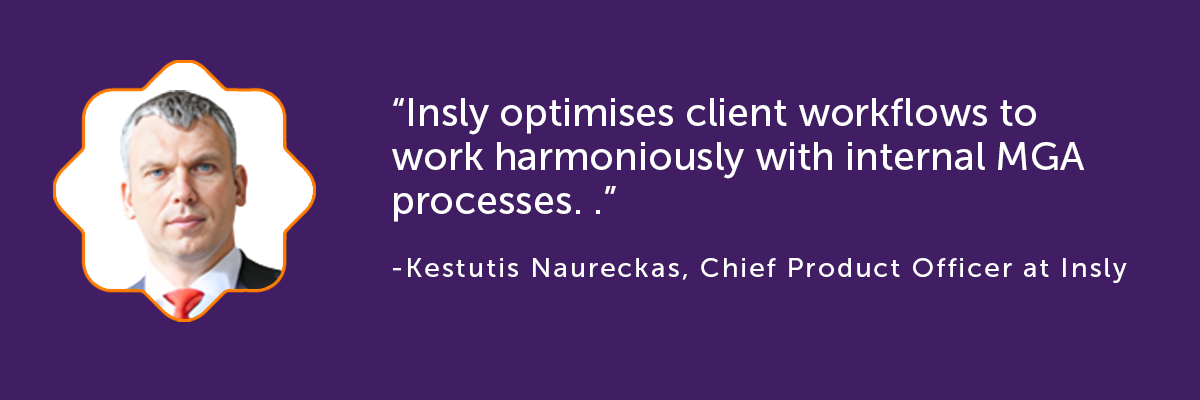2022 has been a challenging year for businesses. The pandemic’s consequences are still being felt by smaller firms, interest rates and inflation are skyrocketing, and consumer expectations are expanding and diversifying.
But despite the challenges, MGAs and insurers have, so far, been able to keep up with the pace of change. Insurance industry trend experts predict that combined global premiums for life and non-life insurance will surpass $7 trillion by the end of 2022. Global premium prices also increased 9% in Q2 2022 for the 19th consecutive quarter.
Here at Insly, our low-code insurance platforms provide insurance CIOs and CTOs with the best solution for building unique value propositions while minimising operating costs and business risk.
With that in mind, we interviewed Insly CEO Risto Rossar, Kestutis Naureckas (Chief Product Officer), and Eero Link (Claims Product Manager). We wanted to find out what’s on the horizon for Insly in 2023 and what industry trends MGAs and insurance brands should look out for to maximise profits in the new year.
2022 predictions: The rise of low-code tools and the diversification of MGA distribution channels
At the beginning of 2022, we published our predictions for the year ahead. At the time of writing, we expected more companies to seek out low-code insurance software solutions to speed up operations and bring new products to market in a shorter time frame.
Risto notes that this prediction was absolutely correct. Although insurtech investment fell behind 2021 figures, demand for digital transformation in 2022 was still high, totaling $4.64 billion by 1st July.
“Low code technologies have been around for a long time, but this year the shift in attitudes toward no-code is more significant,” said Risto. He agrees that full-cycle no-code insurance tools are now ready to automate the entire insurance value chain and be accessible to all.
He adds, “A few years ago, no-code insurance platforms were unaffordable for smaller MGA firms. Now we’ve seen a shift. Any small MGA with almost zero IT budget can have the best technology in the world. The whole technological standard of the whole industry has been raised. And once that foundation is in place, it enables many new innovations. This is one of the most exciting things about being in the low-code insurance tech industry at the moment.”
Broker-led distribution channels are still on top
In contrast, our interviewees somewhat disagreed with our early 2022 prediction that introducing low-code insurtech will result in MGAs completely transforming their distribution strategies. Kestutis believes that while many MGA firms may consider using a mix of broker-driven and direct retail channels to build revenue, they must also carefully manage carrier relationships in the process.
“Success in optimising both broker and direct distribution channels to ensure that you are clearly defining your standardised and additional conditions. Don’t jeopardise the effectiveness of your combined retail channel or create any conflicts of interest with all of your capacity partners.”
Overall, Kestutis believes traditional brokers and agents bring in more revenue than direct channel sales, so firms should prioritise these relationships.
“Brokers and agents know the customers better. Retail agents also have the advantage of approaching different distributors to find cover for niche needs, provided they use the right data to optimise their processes,” he said.
Insly works with traditional MGAs looking to tune up their operations and innovative start-ups looking to maximise direct channels. It can supply full-cycle insurance automation tools that aid with communication, underwriting, claims handling, and everything you need to explore new untapped markets as an MGA brand.
Risto notes, “It’s not much up to us to decide which distribution model is right. It’s totally fine to have your niche business and want to make it 20% more efficient. Likewise, it’s totally fine to go and try to disrupt the industry. I think there is a place in a world for both of these types in 2023, and we have the tools that help make both systems more advanced and automated.”
MGA Trend 2023: Business Intelligence (BI) tools will be critical to MGA longevity
A recent survey found that 70% of MGA respondents think that insurance data analytics has significantly improved over the last few years. As a result, they have become more empowered in their risk evaluation and pricing strategies.
Kestutis brings up the example of MGAs in Poland, many of which he sees are utilising enhanced data analytic capabilities to make up for their previous losses throughout the pandemic,
“Comparison engines (specifically the data structures within these engines) have become more popular with brokers and the public than in previous years. The continuation of the digital transformation trend across all industries is making it easier for customers and brokers to access discounts and additional pricing recommendations.”
Financial analytics and reporting tools included in the Insly platform ensure that you meet your income reporting requirements. They also help you better understand your book of business and risk selection processes.
Setting up an IT infrastructure that logs all customer and MGA activity at the individual policy event level is key to eliminating siloed data sets and making all financial data accessible at all times.
We recommend creating a modular IT environment where additional analytics software (such as third-party financial reporting apps) can be layered on top of existing data sets. These integrations will help companies compile a single source of truth for all departments to use to keep ahead of their performance metrics.
Eero underlines the point that focusing more on financial data analytics is vital to staying competitive in the years ahead,
“Analyse your underwriting processes, claims, and preconditions for policies. Anything to help you improve your risk section capabilities. This is absolutely critical.”
MGA Trend 2023: Inflation concerns will continue to impact MGA firms
Ongoing economic instability and the cost-of-living crisis will continue to impact MGA and insurance companies in 2023.
To illustrate, inflation concerns also caused a wave of capacity withdrawals in the CAT property market this year. Specifically, the industry experienced a 15-30% capacity crunch at the end of Q2 2022, as carrier operating costs increased along with reinsurance rates.
Subsequently, these economic and scarcity pressures have shrunk consumer confidence in the industry. A Reinsurance News survey, for instance, found that 77% of respondents believe that many carriers won’t be able to provide an appropriate level of protection because of inflation loss costs and coverage availability.
In addition, a survey of UK consumers found that about half of UK consumers say they’re inclined to reduce their insurance payments in reaction to cost-of-living hikes.
How MGAs can cope with rising inflation costs in 2023
Eero reiterates the well-known insurers’ adage, “In times of big economic crisis, the first thing people want to start saving on is their insurance coverage.” Therefore, he foresees MGAs doing more to optimise their operating costs in the year ahead. He offers advice to companies who are looking to combat the effects of inflation and rising interest rates.
“The right way for MGAs and brokers to move forward would be to lower the costs from the staffing side. But then again, lowering staffing costs is a normal company objective for me, so it shouldn’t necessarily count as just a countermeasure to rising inflation. It should be an ongoing priority.”
Eero also recommends speeding up the claims handling processes, using automated claims processing software to help teams make settlement decisions faster.
“It takes a lot of time for settlements to be finalised. So in the year ahead, MGAs are advised to do all they can to lower the impact of inflation on claims and keep a tight grip on it. Automated claims handling tools will improve customer satisfaction and fraud detection, so you can have both things covered pretty well. You don’t pay out bad claims and you pay out customers really fast.”
Experts are hopeful inflation will improve in 2023
Risto agrees that outside economic pressures must be dealt with on a company level. But inflation can also have its upsides,
“Sometimes inflationary environments and high-interest rates can be positive for insurance brands. For instance, high-interest rates enable insurance companies to make more revenue from underwriting results. They can also take the premiums paid upfront and make higher returns on their investment funds. By this principle, they can also decrease premiums when interest rates are up and attract more sales.”
On balance, Risto believes that insurance companies are successfully weathering the current economic crisis,
“All insurance companies have all foreseen this inflationary period pretty well. They have increased the prices or managed contracts with their suppliers to control prices. I’m looking at this from a macro perspective, and insurance companies are sufficiently well capitalised. So I think it’s not the biggest problem.”
Industry experts at the Swiss Re Institute concur with Risto’s conclusions. They predict that economic circumstances will improve next year, with an estimated 1.9% increase in life premiums in real terms worldwide.
MGA Trend 2023: Companies will focus on employee-centric digital transformation
Our interviewees discussed at length the benefits of automation in enhancing the underwriter’s and broker’s workflow.
“More and more insurer players understand all product processes need to be transferred to the digital level. And that’s a general trend in all industries. Insurance industry leaders want to eliminate doubling rekeying for quotes, policy documents, etc,” said Kestutis.
As a result, more no-code, low-code insurtech solutions are entering the marketplace. However, Kestutis believes that not all low-code solutions are made equal.
In his experience, he has come across solutions that label themselves as low-code but in reality, only have a limited scope of email template management or include only small elements of low-code technologies.
He elaborates, “The barrier to entry for low-code IT service providers is low, it seems. Your insurance solution needs to be able to handle the full cycle, not just quotes. It needs to be a holistic, problem-solving platform, specifically tailored for insurance processing. You need to be able to organise every aspect of the value chain so you can add things like post-policy action capabilities. You need a digital foundation capable of scaling data enrichment processes.”
Choosing the right technological partner for your no-code insurtech solution
Automated PAS software is widely available. However, it’s not enough for MGA firms to just choose an out-of-the-box solution with the presumption that it will solve all of your problems immediately. Your solutions need to be configured to your unique working practices, so your employees can get the most out of the tools.
Kestutis recommends approaching insurtech providers with a solid MGA knowledge base. Companies like Insly have decades of experience in the insurance industry and offer consulting and project management services. An industry-experienced partner will be most adept at orchestrating a smoother transition to modernised insurtech systems.
Kestutis uses an example of a common onboarding issue that – with our company’s extensive experience in the MGA industry – product teams have been able to overcome. The issue of MGA/broker resistance to breaking old working habits.
“Once underwriters, for example, get used to certain buttons being on the right side of their screen, it can be challenging to change their habits to get them to click on the left. Therefore, Insly optimises client workflows to work harmoniously with internal MGA processes.
We think it’s vitally important to ask new clients what they need and what they did before to help us better define the scope of their low-code software needs. We aim to eliminate resistance to change by simulating real-life use cases in the system as soon as possible. So firms can test configuration solutions and ingratiate the automated tools into their workflows seamlessly,” he said.
What’s on the horizon for Insly in 2023?
In 2023, Insly will continue to seek client feedback, make more adjustments to the Insly platform, fix bugs, and make the onboarding process as straightforward as possible,
“We’re ambitious in our goals to streamline the onboarding process. This will involve many small, carefully managed steps to ensure that productivity will skyrocket once customers are set up correctly with Insly.
For example, if it takes brokers 20 clicks to set up an email, we’ll help configure this process down to four clicks – boosting productivity by incremental fractions. We’re always striving to help replace intricate pieces of our customer’s workload and thus improve operations from a big picture perspective,” said Kestutis.
Thanks to Kestutis, Risto and Eero for their industry predictions for the year ahead.
Insly’s committed to spurring MGA growth through low-code technologies
We keep up-to-date with the latest MGA and insurance industry trends to ensure our customers’ low-code IT infrastructure is seamless and future-proof.
The platform was created with the complex MGA knowledge base in mind and designed to organise every MGA and broker business task – from automating specific referral processes to meeting exacting accounts documentation requirements.
We provide an efficient and scalable no-code/low-code insurance solution. So if you want to learn more about how Insly can improve your business model, please book a demo with us now.


